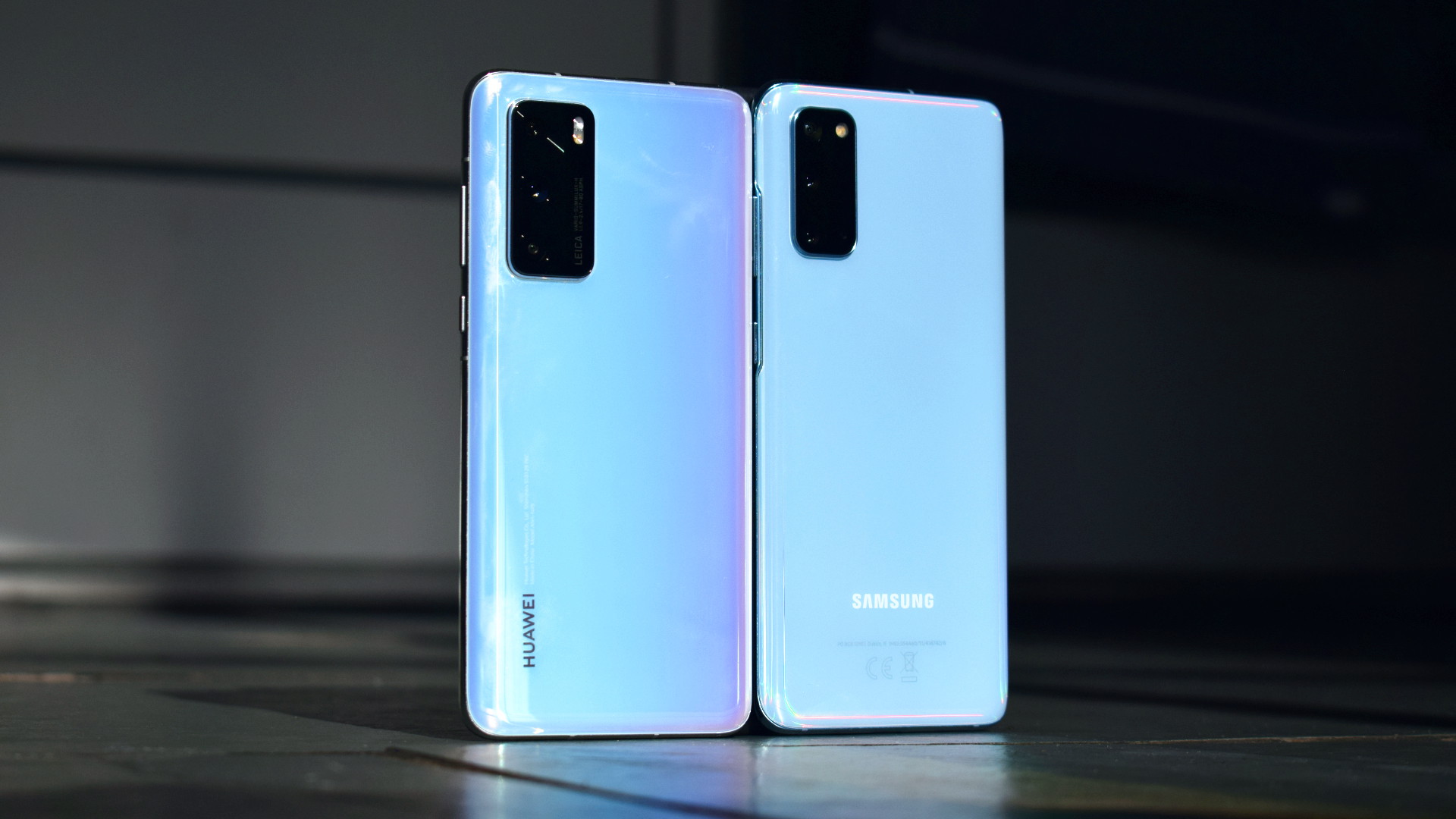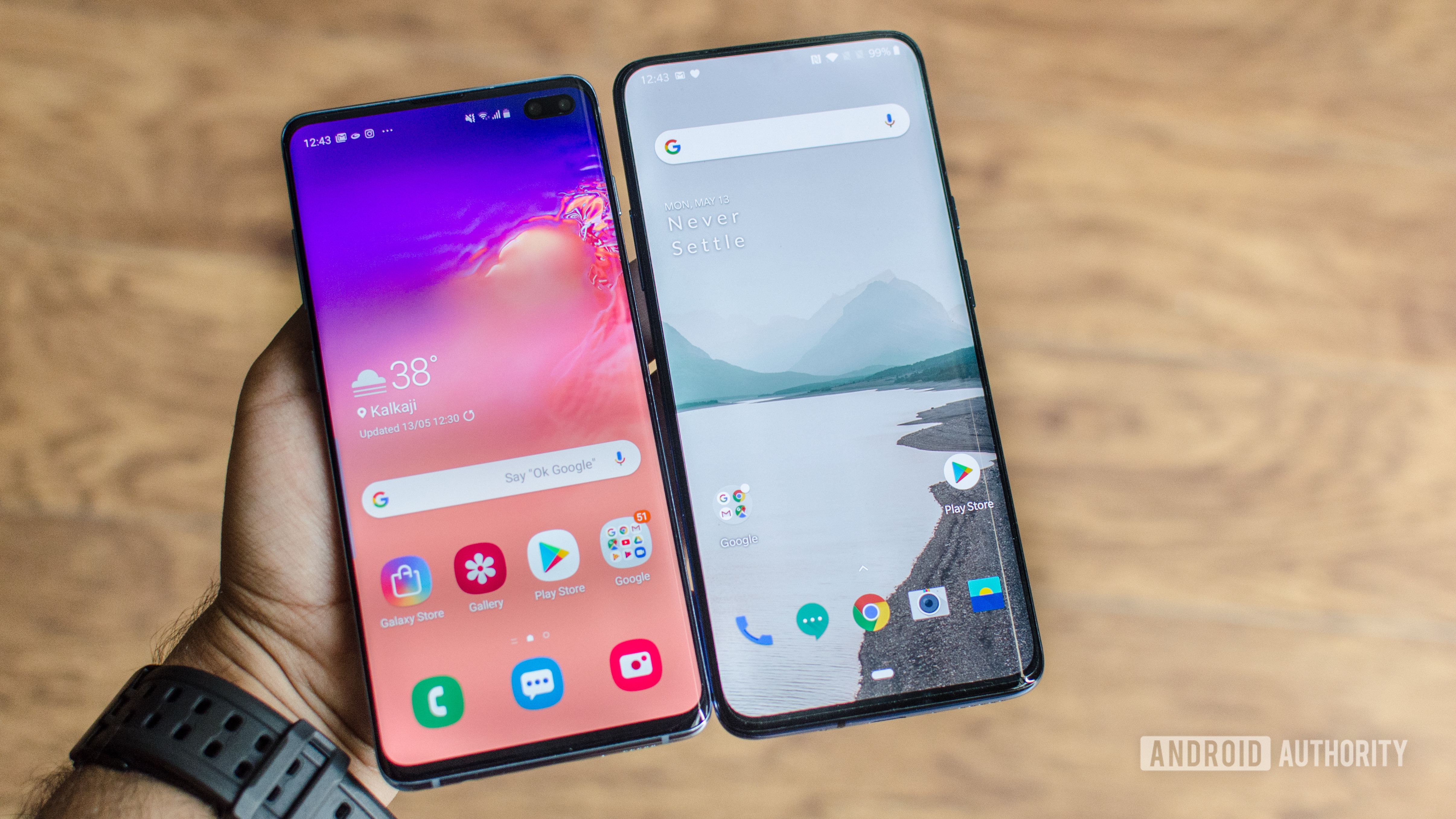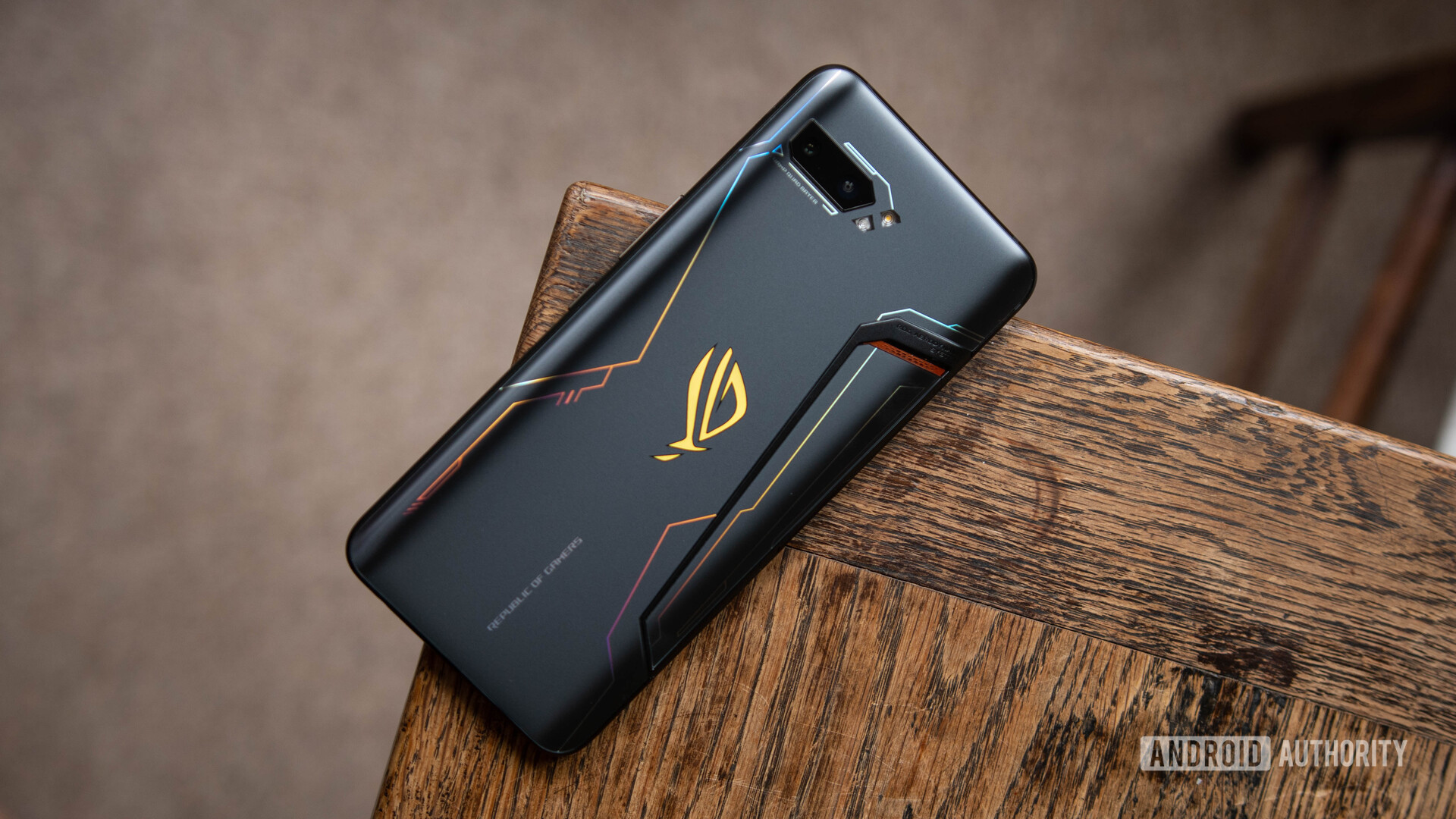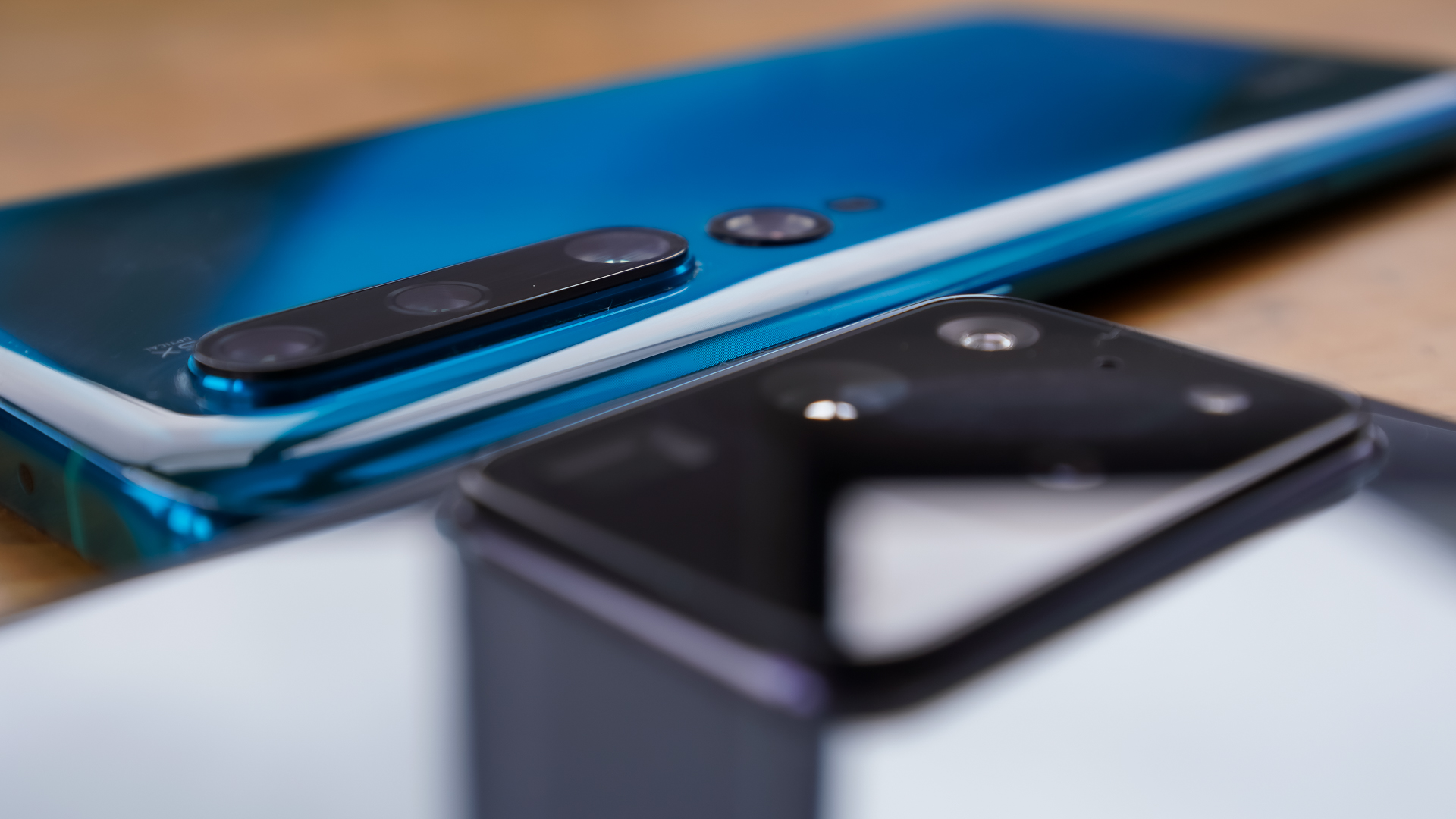The Motorola Edge Plus is the company’s grand return to the flagship space. It’s a beast of a phone, aiming straight at the market’s top devices. But Motorola sat out of the flagship race the last few years, preferring to field affordable fare in the stellar G series in addition to its mid-market play, the tired Z series. Many questions present themselves along with Motorola’s flagship return.
Chiefly, can Motorola rediscover the magic that made it a household name a generation ago? Find out in Android Authority‘s Motorola Edge Plus review.
Motorola Edge Plus review: Who is this phone for?

The Motorola Edge Plus has arrived at the worst possible time. Granted, a slate of phones were set to be announced during the cancelled Mobile World Congress event back in February, where they all would have struggled for attention. Motorola, however, is now the last of the major phone makers to introduce its MWC goodies. Samsung, LG, OnePlus, Oppo, Xiaomi, Huawei, and others have all trotted out stellar high-end devices that target high-end shoppers. Perhaps worse, Apple just dropped a $400 iPhone that forces people to reconsider whether or not flagship purchases are necessary.
Motorola has a lot riding on the success of the Edge Plus, and couldn’t be wading back into the market at a more challenging moment.
The primary competitors of the $999 Edge Plus are the Samsung Galaxy S20 Plus, LG V60, OnePlus 8 Pro, Oppo Find X2, Xiaomi Mi 10 Pro, and the Huawei P40 Pro. Each of these devices is at, or near, the thousand-dollar mark and poses a very serious risk to Motorola’s chances of winning over consumers.
Let’s see if Motorola got the job done.
Design: Fresh ideas

- Curved glass
- 161.1 x 71.4 x 9.6mm
- 203g
- Smokey Sangria, Thunder Grey
The Edge Plus is a departure for Motorola as far as the design is concerned. It eschews the basic shape shared by many Motorola phones over the last five or six years in favor of its own silhouette. Gone are the wide-radius shoulders and in their place you’ll see a tall, skinny phone with a sharper appearance. Thanks to the elongated aspect ratio, the Edge Plus may remind some of the Sony Xperia 1.
There are a few things I like and a few things I dislike.

In the like column. Motorola has wholly adopted the glass sandwich design. The display glass has a really tight curve that blends into the side edge. The aluminum frame in between the glass panels is incredibly slim along the sides, though it borders on chonky across the top and bottom edges. I particularly appreciate the way the thicker metal is bent at the corners to soften their points. The seams are tight and the quality of the materials is excellent.

Motorola has created one of the leading all-screen designs. Where its Z series was long hindered by thick bezels, this phone eliminates them almost entirely. There are no bezels along the sides at all, and the thin sliver of aluminum that frames the glass at either end is barely visible.

I dig the color options, which are Smokey Sangria and Thunder Grey. Our unit is the grey one. There’s no gradient to the finish, but it has a really appealing sheen to it that I found myself admiring as I reviewed the phone. I also appreciate the headphone jack, something most competitors lack.
Motorola checked off most of the right boxes here.
In the dislike column. The aluminum side frame has a sharp profile that you can feel pressing against the soft flesh of your palm. It gets old. The volume button and power key, both on the right edge, are razor thin and feel cheap. The power key actually moves around a little, which is just not cool on a phone that costs this much.
Motorola kept the dimensions of the rear-mounted camera module in check, but it’s partially made of plastic and feels a tad cheap to the touch. I don’t know what would make this better, but I do know that it could be.

The dimensions of the phone are odd. It’s super tall, really narrow side to side, yet totally chunky front to back. The 9.6mm thickness, in particular, means the Motorola Edge Plus is several millimeters thicker than competing devices. It’s noticeable. The combination of these measurements mean your thumb has no hope of ever reaching the top of the display, lest you wrestle with the phone in your grasp. Toss in a slippery exterior, and you’ve got a recipe for disaster. You’ll probably do well to find a case for the phone.
And the one real failure? The phone isn’t waterproof. Despite the fact that most competing devices carry an IP68 rating against dust and water, Motorola has soldiered forth with its nano-coated innards, making the Edge Plus simply “splash proof.� Motorola’s marketing materials spell out clearly: “not waterproof.� Bummer.
Motorola checked off most of the right boxes here. The Edge Plus has nearly all the features of the competition, as far as raw hardware is concerned, and — despite my grievances — a solid design to boot.
Display: Wrong side of the curve

- 6.7-inch AMOLED with curved edge display
- 2,340 x 1,080 FHD+ resolution
- 90Hz refresh rate
- 21:9 aspect ratio
- HDR10+
- Optical in-display fingerprint sensor
Motorola opted for quite a display panel for its flagship return. Gone is the nearly flat glass seen on phones such as the Moto Z4 and in its place you’ll find the most curved glass panel ever. Talk about different!
Similar to phones such as the Huawei Mate 20 Pro and Samsung Galaxy 8/9 series, elements on the Edge Plus’ display wrap around onto the side edges of the phone. This makes some apps harder to deal with, as you may need to tap something that’s around the curve. Thankfully you can control this to a degree, though it’s on an app-by-app basis. I wish you could dial in the change system wide. Thankfully, the phone avoids the false positive issue, which would otherwise have people accidentally tapping things they didn’t intend.
The size, resolution, refresh rate, and aspect ratio of the screen are all fine. It’s certainly vibrant, colorful, and sharp. Motion looks incredibly smooth, thanks to the speedy 90Hz refresh rate, as on-screen elements zoom up and down with nary a stutter. I really like the advanced controls for flashing notification lights, dark mode, and such. It’s a good screen. Most of the time.
The Edge Plus display isn’t bad, but it’s not what I want to see on a flagship in 2020.
My big gripe with the phone is the way the curved glass treats the light coming from the display. The screen is markedly darker along the edges where the curve sits and, in some cases, causes blue shift when viewing white content. This is simply the physics of light passing through bent glass. I find it utterly aggravating — just as I did on older phones that relied on this setup. It makes the narrow screen look and feel even more narrow, effectively reducing the usable size of the screen. I wish Motorola had chosen another display style.

The Edge Plus display isn’t bad, but it’s not what I want to see on a flagship in 2020.
Performance: On par
Processor: No surprises
- Qualcomm Snapdragon 865
- Adreno 650 GPU
- 12GB LPDDR5 RAM
- 256 UFS 3.0 storage
With Qualcomm’s premier chip aboard and a generous 12GB of high-speed RAM, the Edge Plus powers through benchmark tests. It scored, on average, in the 95th percentile across a variety of tests, including AnTuTu, Geekbench, and 3DMark.
More importantly, the phone always felt fast and light on its feet. Absolutely nothing bogged the UI down, even a big game such as Fortnite. The Motorola Edge Plus has all the performance you’ll ever need.

Battery: Stellar
- 5,000mAh lithium-ion
- 15W wired charging
- 15W wireless charging
- 5W reverse wireless charging
Motorola equaled its direct competitors with respect to battery life, at least by some measures. The 5,000mAh is the same size as that in the LG V60 and Samsung Galaxy S20 Ultra, and it bests what’s in the OnePlus 8 and S20 Plus. Motorola claims the battery delivers more than two days of uptime. Over the course of six days, I had a hard time killing the battery entirely. It only croaked when I ran it through a brutal stress test for 16+ hours. You know what they say about the Energizer Bunny… Screen-on time typically range over seven hours for my use, which is better than the Samsung S20 series, and equal to the OnePlus 8 Pro and V60.
The phone is a bit limited with respect to charging speeds. It handles 15W wired and wireless charging. We would have preferred to see 30W or higher (which many of Motorola’s competitors support.) It takes a solid 1 hour 50 minutes for the battery to charge fully. Still, you can leave work with 50% and still have more than enough to get through an entire night out.
Last, it handles reverse charging at 5W. This means you can top-up select accessories, such as wireless headphones. At 5W, it’s pretty slow, though it’s on par with most competitors.
What matters most? The battery gets you through the promised two days. That’s more than most phones.
Camera: Open to possibilities

- Rear:
- Main: 108MP, ƒ/1.8, 0.8μm pixels, 1/1.33� sensor, OIS
- Telephoto: 8MP, ƒ/2.4, 1.0μm pixels, 3x optical zoom, OIS
- Ultra-wide/Macro: 16MP , ƒ/2.2, 1.0μm pixels, 117-deg. FoV
- Time of flight sensor
- Front:
- Selfie: 25MP, ƒ/2.0, 0.9μm pixels, Quad Pixel for 1.8μm
- Video:
- 6K, 4K, FHD, 19.5:9
Motorola has been trying hard to build its camera cred and the Edge Plus may be its best effort yet. The phone packs a 108MP main sensor that bins down by a factor of four to 27MP. Motorola did the right thing and loaded the phone with a 3x optical telephoto lens and a combined ultra wide-angle/macro lens. The 25MP selfie camera also bins down by a factor of four to 6MP. You can record video up to 6K.
The app is fairly robust. It’s not quite the stock Android camera, but it is close. It’s dead simple to use. Shooting modes include: portrait, cutout, macro, spot color, night vision, cinemagraph, panorama, live filter, and high-res, and video modes include macro, slow motion, time-lapse, and AR stickers. I like that the mode picker is just three things: camera, video, and a tray with everything else. The settings are extensive and allow for plenty of customization to the app. As always, you can launch the camera app with a quick twist of your wrist.
The shots I took with the phone turned out well, for the most part. I particularly like color representation and exposure, which are on point. Check out the tree with flowers and bridge. Noise and artifacts are limited to shadowy areas. The HDR tool works fairly well, as you can see in the balanced under-the-bridge shot.
A zoom picker lets you quickly jump from 0.5x to 1x to 3x. You can zoom in as far as 10x digitally, but the results are pretty bad. The three main lenses deliver sharp shots at their base focal lengths. I used the 3x optical zoom on the bridge close-up and the geese. You can see how sharp the geese are, which is surprising considering they were paddling along quickly.
The selfie shooter is a mixed bag. The regular selfie shot below is sharp and clean, with everything in focus. The portrait, on the other hand, is a mess. I took several samples and all of them cut off the right side of my head. That’s edge detection gone awry.
For whatever reason, Motorola didn’t want to go with 8K. The company said it felt they are too many limitations with 8K video capture (storage, etc.) It went with 6K instead. The 6K video can be downsampled to 4K or FHD if needed. The video footage looks really good. You can capture at full resolution 6K, 4K, FHD, or change the aspect ratio to 19.5:9. It isn’t the same 21:9 that some phones offer, but it does fill the entire screen as you capture video.
Here is a folder with full-sized photos samples.
How does the camera fare against the competition? Surprisingly, it holds up.
Software: My, my, My UX
- Android 10
- Motorola My UX
The phone runs Android 10, of course, and has the March security update on board. Motorola’s software has led the pack for quite some time. The company employs a mostly stock build of Android, with only the lightest enhancements to improve the experience of using the phone day and in day out. Motorola now calls its software Motorola My UX.
It’s the simple things. Chop the phone twice to turn on the flashlight. Twist your wrist twice to launch the camera. Flip the phone over to turn on Do Not Disturb. Motorola was one of the first with the always-on display, and it continues to lead with a flexible tool that gives you just the right amount of information at the right time.
There’s a certain joy to be found in the simplicity of the user interface.
The software may not look or behave as advanced as competing devices from Samsung and LG, but there’s joy to be found in its simplicity.
Given that the phone is a Verizon Wireless exclusive in the US, we found lots of unwanted bloatware on board. There are a half dozen games, a half dozen Verizon-branded apps, and even a too-large collection of Yahoo apps clogging up storage. The games and Yahoo stuff can be deleted, but the Verizon stuff cannot. Either way, 20 bloat apps is 20 too many. The worst part is that the Verizon App Manager will serve up push notifications to remind you to play Candy Crush. Nooo waaay, Verizon.
Extras
5G: The Edge Plus is Motorola’s first legit 5G phone. The company had a snap-on 5G Mod for the Moto Z3 and Z4, but the Edge Plus has full 5G built in from the get-go. It includes both mmWave and sub-6GHz. Verizon Wireless’ 5G runs on mmWave for the moment and is limited in availability. Due to COVID-19 travel restrictions, we were unable to travel to test it. US residents who have access to Verizon’s mmWave 5G should see very fast download speeds when outdoors in coverage areas. The lesser spec’d Motorola Edge has only sub-6GHz 5G on board. Most ultra flagships have 5G, so this is where Motorola needs to be.
Audio: Motorola went all-in on the audio. To start, the phone ships with stereo speakers. Motorola is combining output from the earpiece with the bottom-firing speaker to create the stereo effect. The company teamed with Waves Audio to tune the sound. Right out of the box the phone sounds really good. To my ears, the stereo effect is a bit imbalanced, with more output coming from the bottom speaker than the earpiece. If you set the phone down, crank it up, and take a few steps back this effect dissolves. The Edge Plus is more than loud enough to fill a small room, or even a garage or deck, with sound. I really appreciate that the newer Moto Audio app allows you to tweak and create your own audio profiles.
Not feeling the built-in speakers? You can plug the phone into your favorite portable speaker thanks to the 3.5mm headphone jack, or, of course, rely on the Bluetooth 5.1 radio with wide codec support.
Specs
| Motorola Edge Plus | Motorola Edge | |
|---|---|---|
| Display | 6.7-inch AMOLED with curved edge display 2,340 x 1,080 resolution 90Hz refresh rate 21:9 aspect ratio HDR10+ |
6.7-inch AMOLED with curved edge display 2,340 x 1,080 resolution 90Hz refresh rate 21:9 aspect ratio |
| SoC | Qualcomm Snapdragon 865 | Qualcomm Snapdragon 765 |
| GPU | Adreno 650 | Adreno 620 |
| RAM | 12GB LPDDR5 |
4GB (NA) 6GB (ROW) |
| Storage | 256GB UFS 3.0 No microSD expansion |
128GB microSD expansion up to 1TB |
| Cameras | Rear cameras – Main: 108MP sensor, Æ’/1.8 aperture, 0.8μm pixels, 1/1.33â€� sensor size, Quad Pixel technology for 1.6μm, OIS – Telephoto: 8MP sensor, Æ’/2.4 aperture, 1.0μm pixels, 3x high-res optical zoom, OIS – Ultra-wide and Macro Vision: 16MP sensor, Æ’/2.2 aperture, 1.0μm pixels, 117-degree field-of-view – Time of flight sensor Front camera |
Rear cameras – Main: 64MP sensor, Æ’/1.8 aperture, 0.8μm pixels, 1/1.72â€� sensor size, Quad Pixel technology for 1.6μm – Telephoto: 8MP sensor, Æ’/2.4 aperture, 1.12μm pixels, 2x high-res optical zoom – Ultra-wide and Macro Vision: 16MP sensor, Æ’/2.2 aperture, 1.0μm pixels, 117-degree field-of-view – Time of flight sensor Front camera |
| IP rating | No Water-repellent design |
No IP54 water-repellent design |
| Audio | Headphone jack Stereo speakers tuned by Waves Audio |
Headphone jack Stereo speakers tuned by Waves Audio |
| Biometrics and sensors | Optical in-display fingerprint sensor Accelerometer Gyroscope Proximity Ambient Light Sensor hub Barometer |
Optical in-display fingerprint sensor Accelerometer Gyroscope Proximity Ambient Light Sensor hub |
| Battery | 5,000mAh Non-removable 15W wired charging 15W wireless charging 5W reverse wireless charging |
4,500mAh Non-removable 18W wired charging No wireless or reverse wireless charging |
| SIM | Single nano SIM | Hybrid dual SIM (2 nano SIMs / 1 nano SIM + 1 microSD) |
| Network | 5G: NR mmWave + sub-6GHz (NA & Russia) 5G: NR sub-6GHz (ROW) 4G: LTE (UL Cat 18 / DL Cat 20) 3G: UMTS / HSPA+ 2G: GSM / EDGE / CDMA Verizon: ROW: |
5G: NR sub-6GHz 4G: LTE (UL Cat 13 / DL Cat 16) 3G: UMTS / HSPA+ 2G: GSM / EDGE 5G: 1/2/3/5/7/25/28/38/41/66/71/78 |
| Connectivity | Bluetooth 5.1 Wi-Fi 802.11 a/b/g/n/ac/ax | 2.4GHz + 5GHz Wi-Fi 6 Wi-Fi hotspot GPS, A-GPS, GLONASS, Galileo, BDS (except in US) |
Bluetooth 5.1 Wi-Fi 802.11 a/b/g/n/ac | 2.4GHz & 5GHz Wi-Fi hotspot GPS, AGPS, LTEPP, SUPL, GLONASS, Galileo, Beidou |
| Software | Android 10 | Android 10 |
| Dimensions and weight | 161.1 x 71.4 x 9.6mm 203g |
161.64 x 71.1 x 9.29mm 188g |
| Colors | Smokey Sangria, Thunder Grey | Solar Black, Midnight Magenta |
Value for money
- Motorola Edge Plus — 12GB/256GB: $999
Motorola is selling a single version of the phone and it costs $999. Verizon Wireless is offering the phone with some solid discounts if you switch to the network, so you might be able to score it for less than full price.
That said, the phone is competitive as far as the price is concerned. Phones such as the OnePlus 8 Pro and Samsung Galaxy S20 Plus are about the same cost and deliver equivalent performance. This raises the question: Is the Motorola Edge Plus worth a grand?
Motorola priced the phone maybe $100 too high. I think it would be a more competitive offering at $799 or $899. That said, I think there’s plenty of value here. You get a good-looking phone with excellent hardware and performance at a cost that’s comparable to other options in the market. With luck, the price will drop just a bit post-launch.
Motorola Edge Plus review: Should you buy it?
Who is this phone for? It’s for people who want to give Motorola a shot. Maybe you’re tired of Galaxies, Notes, Vs, Gs, and Ps. The Motorola Edge Plus is a new and unique device that fares well.
My biggest complaint with the phone is the display, which may be just me. You may not have an issue with the curved light phenomenon. The other major issue is, of course, the Verizon exclusivity. That really hold the phone back. Granted, it will be available outside the US, but we don’t yet know when, where, nor for how much.
When it comes to everything else, Motorola did a fine job. Basics such as battery life, processing power, 5G, and overall quality are all spot on. The camera is surprisingly good for a Motorola phone. It won’t challenge the Pixel 4’s supremacy, but it’s on par with the LG V60 and OnePlus 8.
For those who want to try something fresh, the Motorola Edge Plus is a fine choice.
This concludes the Android Authority Motorola Edge Plus review.






































